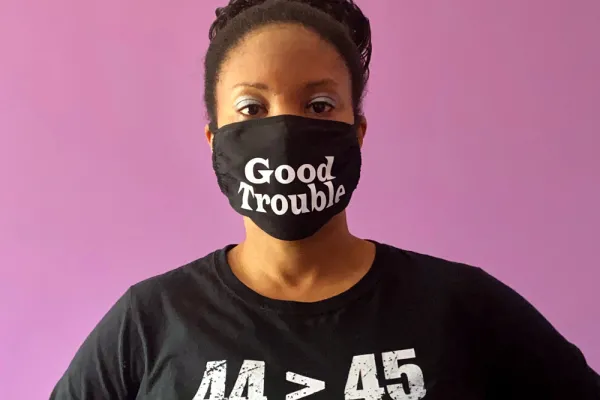‘Systemic Racism Has Made This Pandemic the Crisis That It Is’
Alum News
Published July 7, 2021
Over the past year, I’ve listened as news anchors, pundits and politicians expressed amazement at the fact that Black and brown communities were hit harder by COVID-19 than predominantly white regions of the country.
As a Black woman physician from the South, I know that every patient is not equal, and I assumed it was common knowledge that being Black was connected with poorer health out-comes. The pandemic made real what were once theoretical numbers. Blacks were infected with and died from COVID-19 at two to three times the rate of whites.
The reasons had little to do with the “underlying conditions” or “lack of resources” that are so often cited in the mainstream when attempting to explain away health disparities among people of color. Rather, the pandemic put a spotlight on the systemic inequalities that communities of color face daily. We were advised, for example, to “work from home.” That’s not easy when your job can’t be done from home, or when you don’t have sick days and need the income. We were told to “stay away from others.” Try explaining that to an essential worker who needs public transportation to get to work every day, or someone who resides in crowded or shared housing.
Limited access to testing, doubt from providers about the necessity of the test and the reluctance of doctors to admit Black patients for treatment all add to the systemic racism that has made this pandemic the crisis that it is. The viral video of Dr. Susan Moore succumbing unnecessarily to COVID showed that being knowledgeable and articulate and advocating for yourself is not enough against the biases, assumptions and inadequate care that can be shown to Black bodies. We are seeing this continue now with the vaccine rollout. Counties with the highest infection rates have fewer vaccines than counties with the most privilege.
It is time to use the lessons we’ve learned in the past year to erase the gaps in health care that disproportionately affect Black and brown people. We need to be aware of these inequities and listen to patients. We need to train tomorrow’s doctors to be aware of unconscious bias and have difficult conversations that address preconceptions. And we need to encourage Black and brown women to advocate for themselves while we work to level the playing field for all patients.
Kimberly McGill ’01 is an OB-GYN at Associates in Women’s Healthcare in Raleigh, North Carolina. She received her medical degree from the Case Western Reserve University School of Medicine.
This story appears in the Summer 2021 issue of the Smith Alumnae Quarterly.
Read More Smart Ideas for a Post-Pandemic World
Work: Dorie Clark ’97, ‘You Can’t Afford to Be Seen as Dispensable’
Creativity: Alice Howe ’13, ‘Slowing Down Was at First a Challenge, Then a Gift’
Remote Learning: Jennifer Smith ’91, ‘Education Is Meant to Be Active’
“The pandemic put the spotlight on the inequalities that communities of color face daily.” Photograph courtesy of Kimberly McGill ’01

